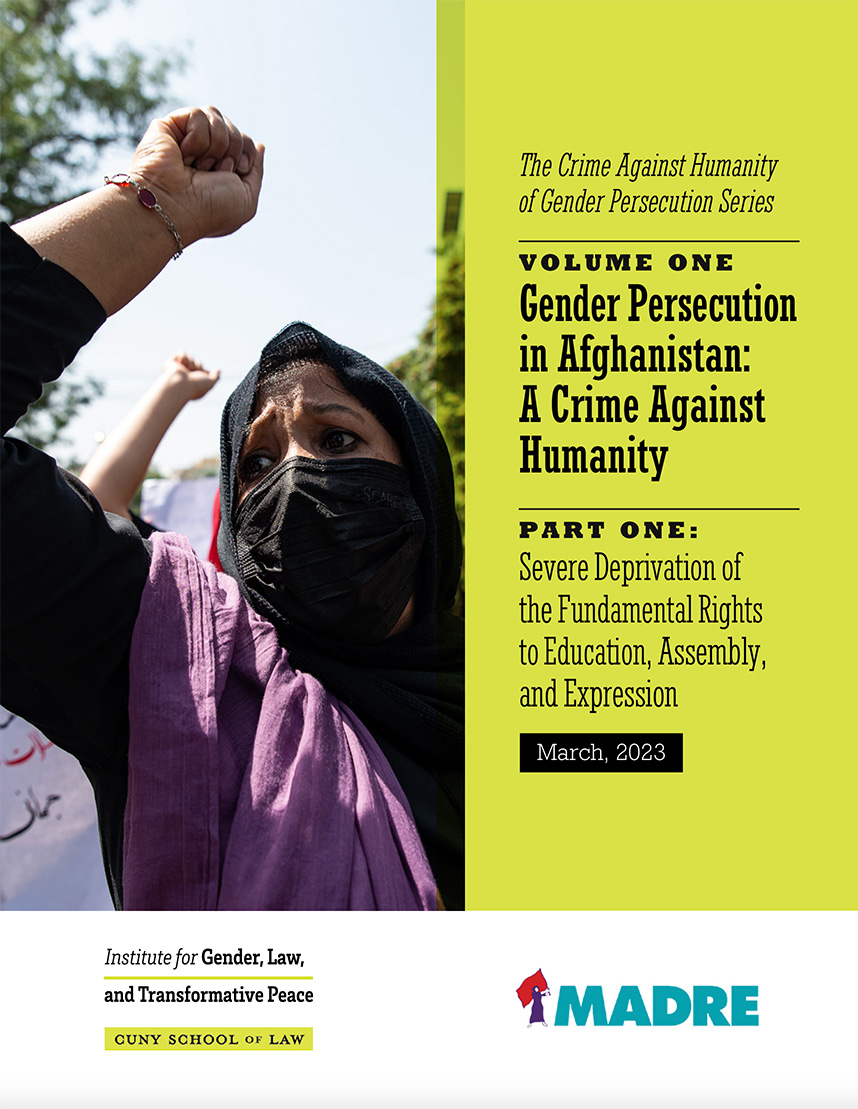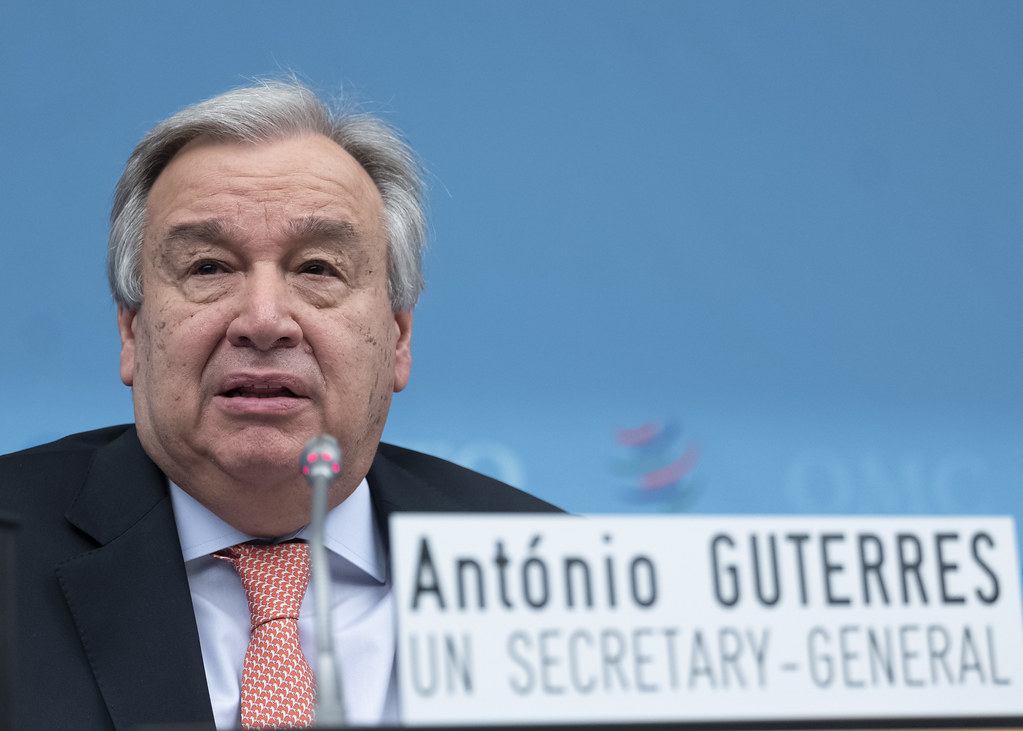How the HRGJ Clinic won Gender Persecution in the Rome Statute
In the 1990’s, the IWHR Clinic served as Secretariat for the Women’s Caucus for Gender Justice (the Caucus) (now called the Women’s Initiative for Gender Justice). Professor Copelon was the founder of and Legal Advisor for the Caucus, which coordinated the effort to ensure the draft Rome Statute of the ICC accounted for gender in crimes, procedure, evidence, and composition of the Court. Copelon and the Caucus also successfully called to replace “sex” for “gender” as a protected ground from persecution.
A socially conservative opposition objected, fearing that the term “gender” would increase protections for women and LGBTQI+ persons from discrimination. While only a handful of delegates initially supported the Caucus, momentum started to build and support significantly increased by the time the Rome Conference came about (where the Rome Statute was drafted). Swapping “sex” for “gender” was one of the most important safeguards to happen at the Rome Conference. However, it came with an opaque definition: “it is understood that the term ‘gender’ refers to the two sexes, male and female, within the context of society.” No other protected class under persecution has a definition and the definition was never used again in any subsequent legal instrument until the CAH treaty was drafted.
Gender in the Crimes Against Humanity Treaty
In December 2017, Professor Lisa Davis of the HRGJ Clinic heard that the new crimes against humanity treaty being drafted by the International Law Commission had adopted the outdated definition of gender from the Rome Statute. Concerned that the new treaty would likely not come with an international court that could apply the legal term of gender consistently with international law, Prof. Davis, pulled together a coalition of organizations and universities. Building on the legacy work of Prof. Copelon and the Caucus, the Coalition sought to ensure that the draft treaty reflected the progress made since the Rome Conference and not adopt the outdated definition of gender.
By December 2018, the Coalition was successful in organizing hundreds of civil society members, states, and UN experts who made their voices heard to the Commission and called for the removal or revision of the definition of gender. In its last and final report on the draft CAH treaty to the UN General Assembly (UNGA), in September 2019, the Commission removed the opaque definition of gender. Shortly after, the Coalition also successfully worked to remove the same outdated definition of gender in the Mutual Legal Assistance Initiative for the Convention on International Cooperation in the Investigation and Prosecution of the Crime of Genocide, Crimes against Humanity, War Crimes, and other International Crimes. In 2021, Lisa Davis was appointed the first Special Adviser on Gender Persecution to the International Criminal Court. In 2022, at the request of the ICC Prosecutor Karim Khan, Professor Davis drafted the first policy on the crime of gender persecution for the Office of the Prosecutor, ensuring the legal understanding of the term gender as codified under international law.


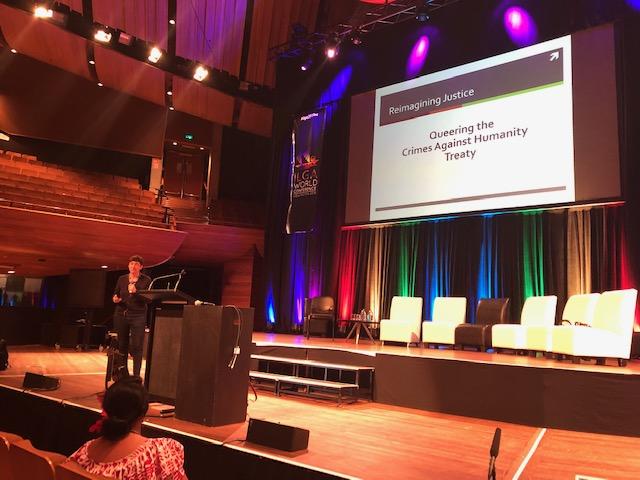 The International Law Commission announces a one-year deadline for recommendations on the draft CAH treaty. Within days of hearing about the new draft treaty the Coalition is formed. Building on the legacy of the Women’s Caucus for Gender Justice at Rome, the Coalition rallies states, UN and other experts, activists, academics and other key stakeholders from around the world to ensure that the draft treaty reflects the progress made since the Rome Statute.
The International Law Commission announces a one-year deadline for recommendations on the draft CAH treaty. Within days of hearing about the new draft treaty the Coalition is formed. Building on the legacy of the Women’s Caucus for Gender Justice at Rome, the Coalition rallies states, UN and other experts, activists, academics and other key stakeholders from around the world to ensure that the draft treaty reflects the progress made since the Rome Statute.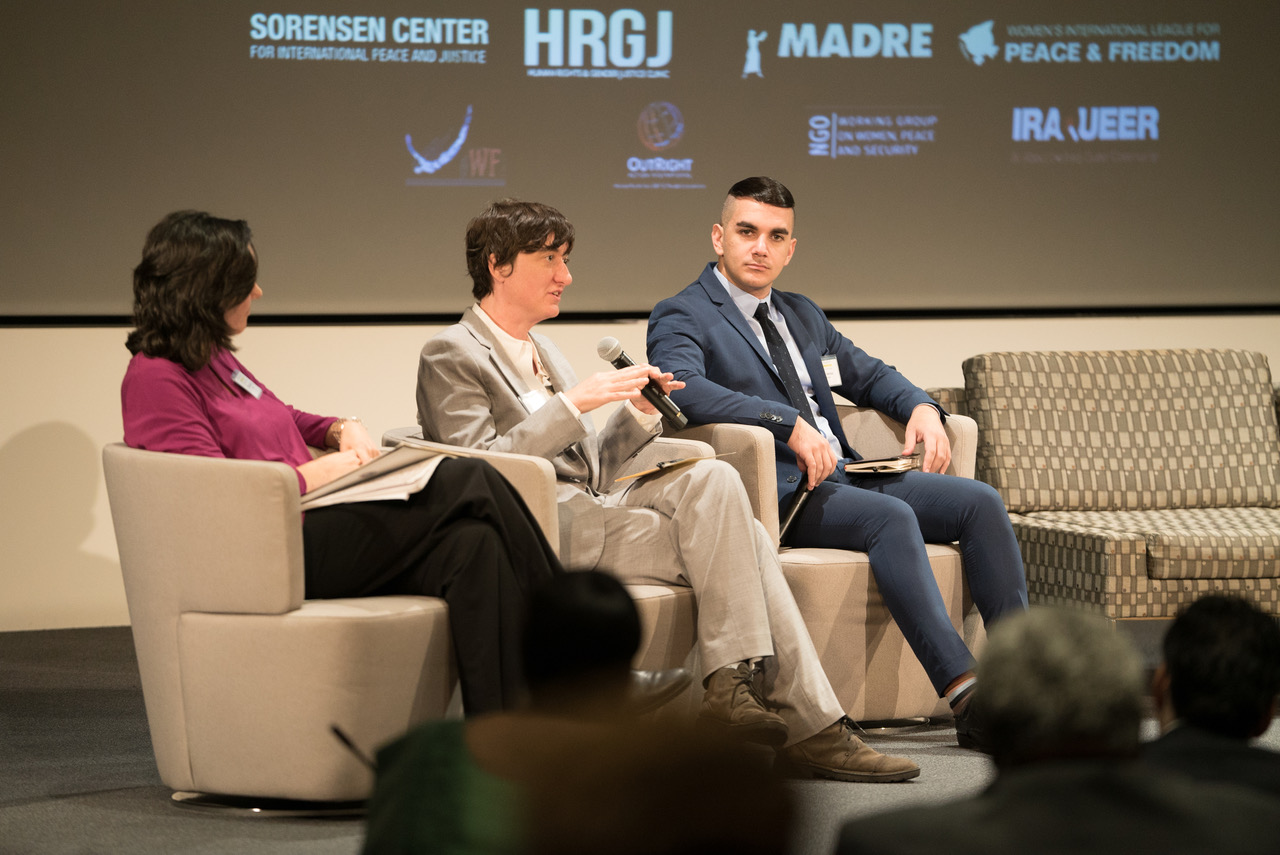 Over 30 international experts and scholars on women’s rights, LGBTQI+ rights, and international criminal law come together at CUNY Law School to discuss the draft CAH treaty. They develop recommendations on effective strategies for infusing a gender analysis and engaging with key stakeholders.
Over 30 international experts and scholars on women’s rights, LGBTQI+ rights, and international criminal law come together at CUNY Law School to discuss the draft CAH treaty. They develop recommendations on effective strategies for infusing a gender analysis and engaging with key stakeholders.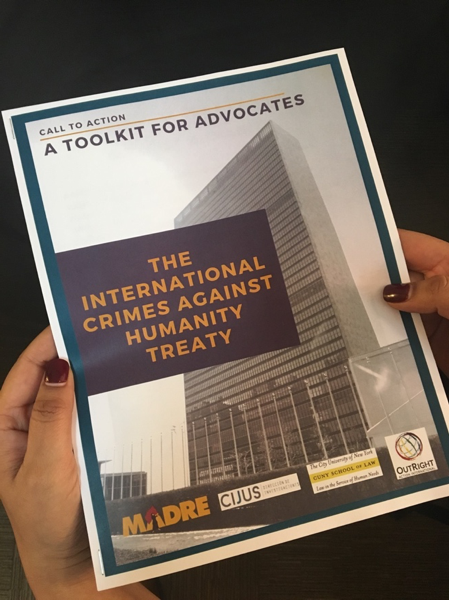 The HRGJ Clinic publishes a toolkit for advocates on the draft CAH treaty, highlighting the progress made on safeguarding gender justice during the Rome Conference, and concerns with the current language adopted in the draft CAH treaty. The toolkit also guides advocates on how they can make their voices heard in the drafting process. The toolkit is published in
The HRGJ Clinic publishes a toolkit for advocates on the draft CAH treaty, highlighting the progress made on safeguarding gender justice during the Rome Conference, and concerns with the current language adopted in the draft CAH treaty. The toolkit also guides advocates on how they can make their voices heard in the drafting process. The toolkit is published in 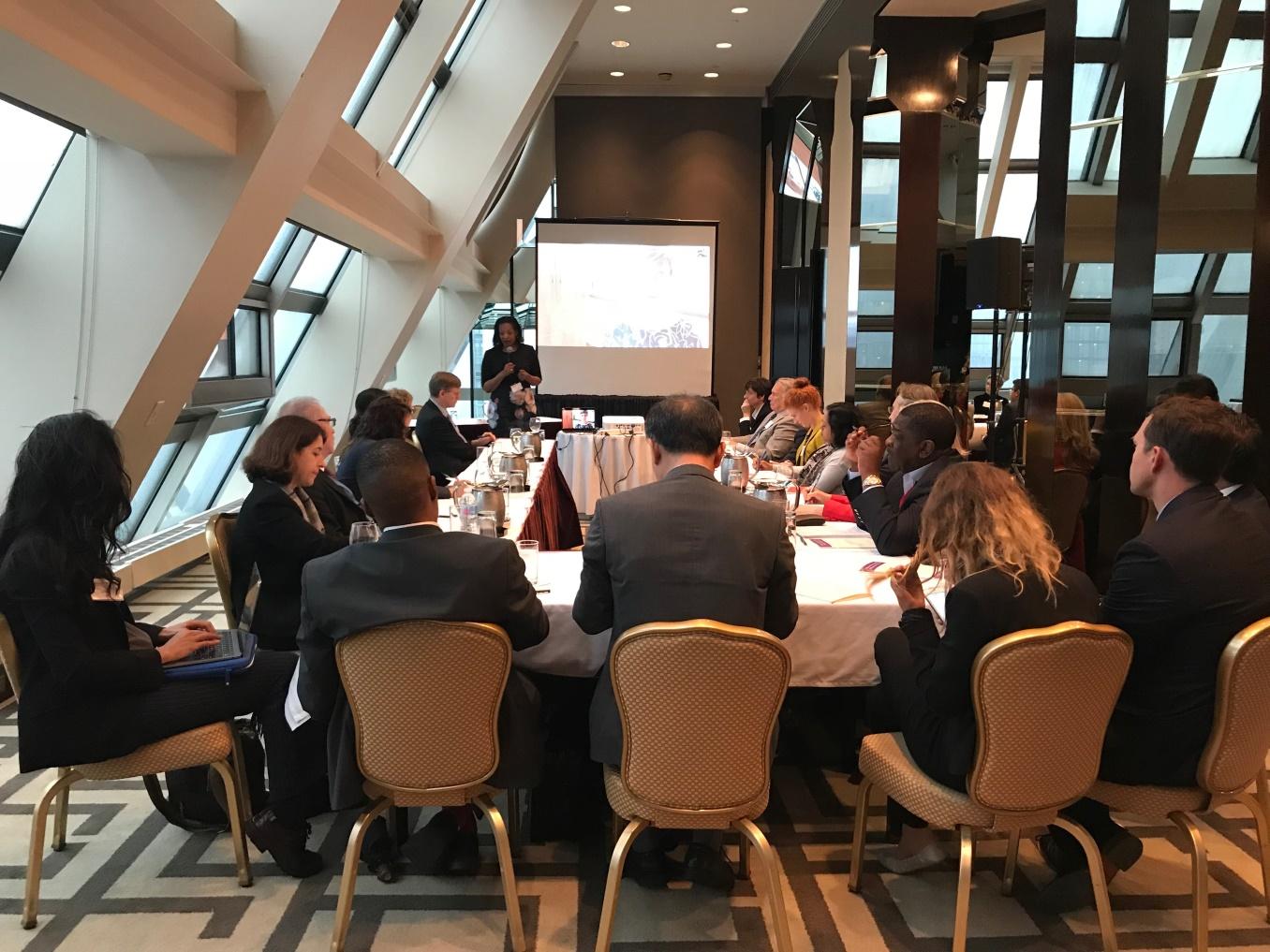 HRGJ organizes a reception for Members of the Commission to discuss the draft treaty. Chairman, Eduardo Valencia-Ospina and Sean Murphy, Special Rapporteur on crimes against humanity for the Commission, provide opening remarks. Prof. Lisa Davis, Patricia Viseur-Sellers, and Prof. Valerie Oosterveld speak at the event.
HRGJ organizes a reception for Members of the Commission to discuss the draft treaty. Chairman, Eduardo Valencia-Ospina and Sean Murphy, Special Rapporteur on crimes against humanity for the Commission, provide opening remarks. Prof. Lisa Davis, Patricia Viseur-Sellers, and Prof. Valerie Oosterveld speak at the event.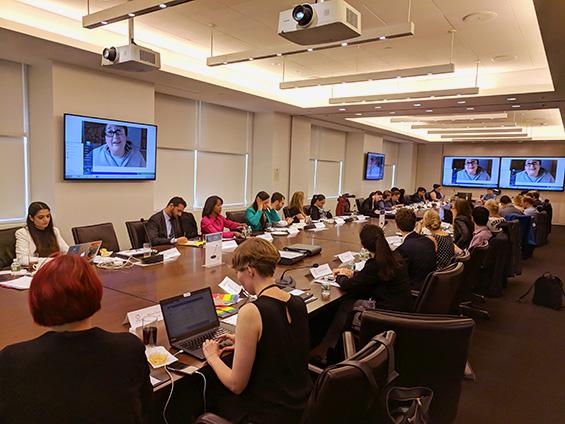 The LGBTI Core Group, an informal cross-group of the UN member states who work for LGBTQI+ related interests at the UN. The Core Group discusses the work on the treaty thus far and emphasizes the need for coordination of the UN General Assembly (UNGA) 6th Committee once the draft passes from the Commission to the 6th Committee. Prof. Lisa Davis and Jessica Stern lead the discussion and provide an analysis of strengths and weaknesses with the current CAH treaty draft.
The LGBTI Core Group, an informal cross-group of the UN member states who work for LGBTQI+ related interests at the UN. The Core Group discusses the work on the treaty thus far and emphasizes the need for coordination of the UN General Assembly (UNGA) 6th Committee once the draft passes from the Commission to the 6th Committee. Prof. Lisa Davis and Jessica Stern lead the discussion and provide an analysis of strengths and weaknesses with the current CAH treaty draft.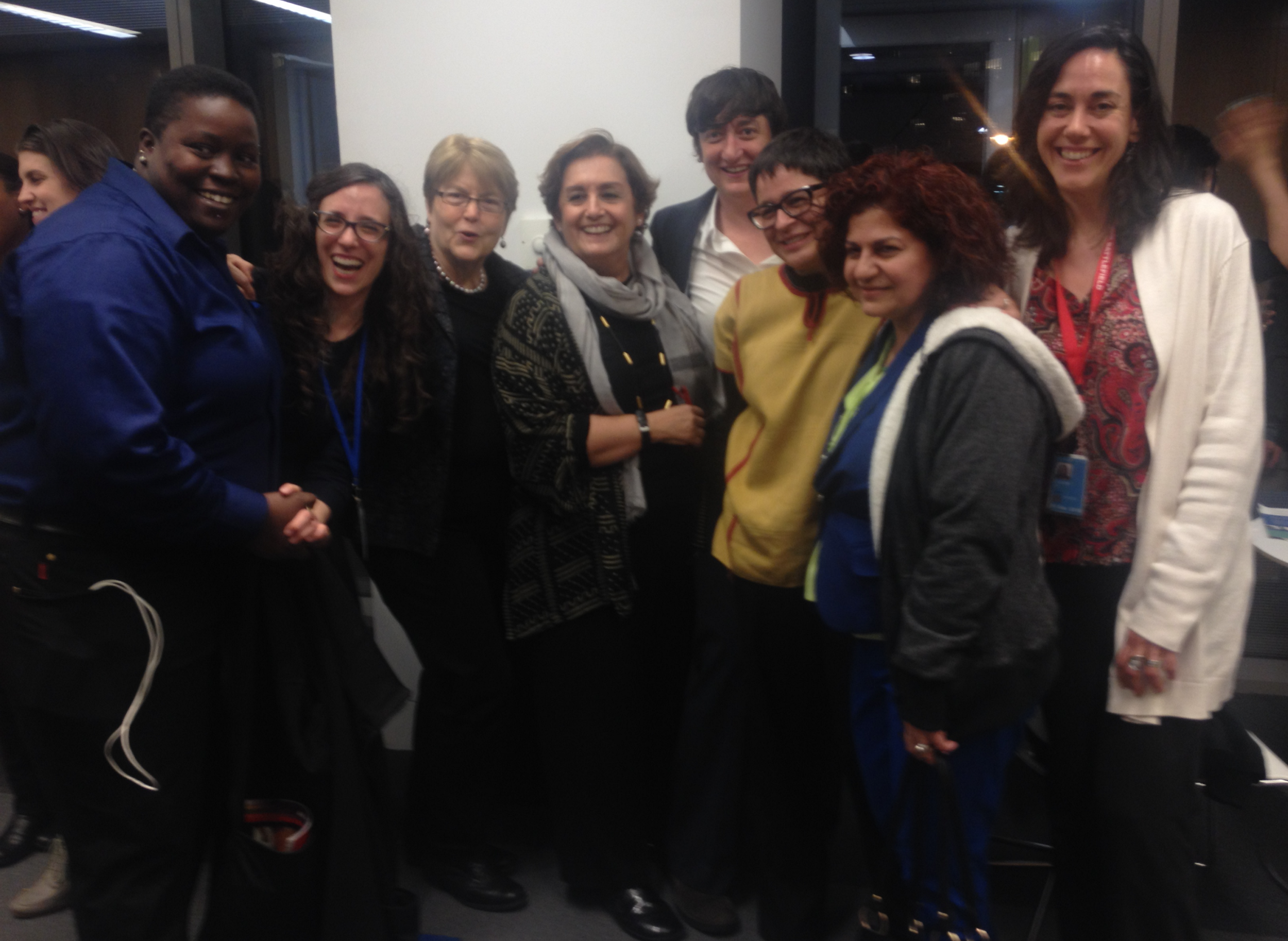 Experts gather at the London School of Economics to discuss the gender provisions of the draft CAH treaty. Prof. Davis provides an overview of the draft. Experts then engage on language recommendations as well as the need to mobilize broader civil society support for the initiative.
Experts gather at the London School of Economics to discuss the gender provisions of the draft CAH treaty. Prof. Davis provides an overview of the draft. Experts then engage on language recommendations as well as the need to mobilize broader civil society support for the initiative.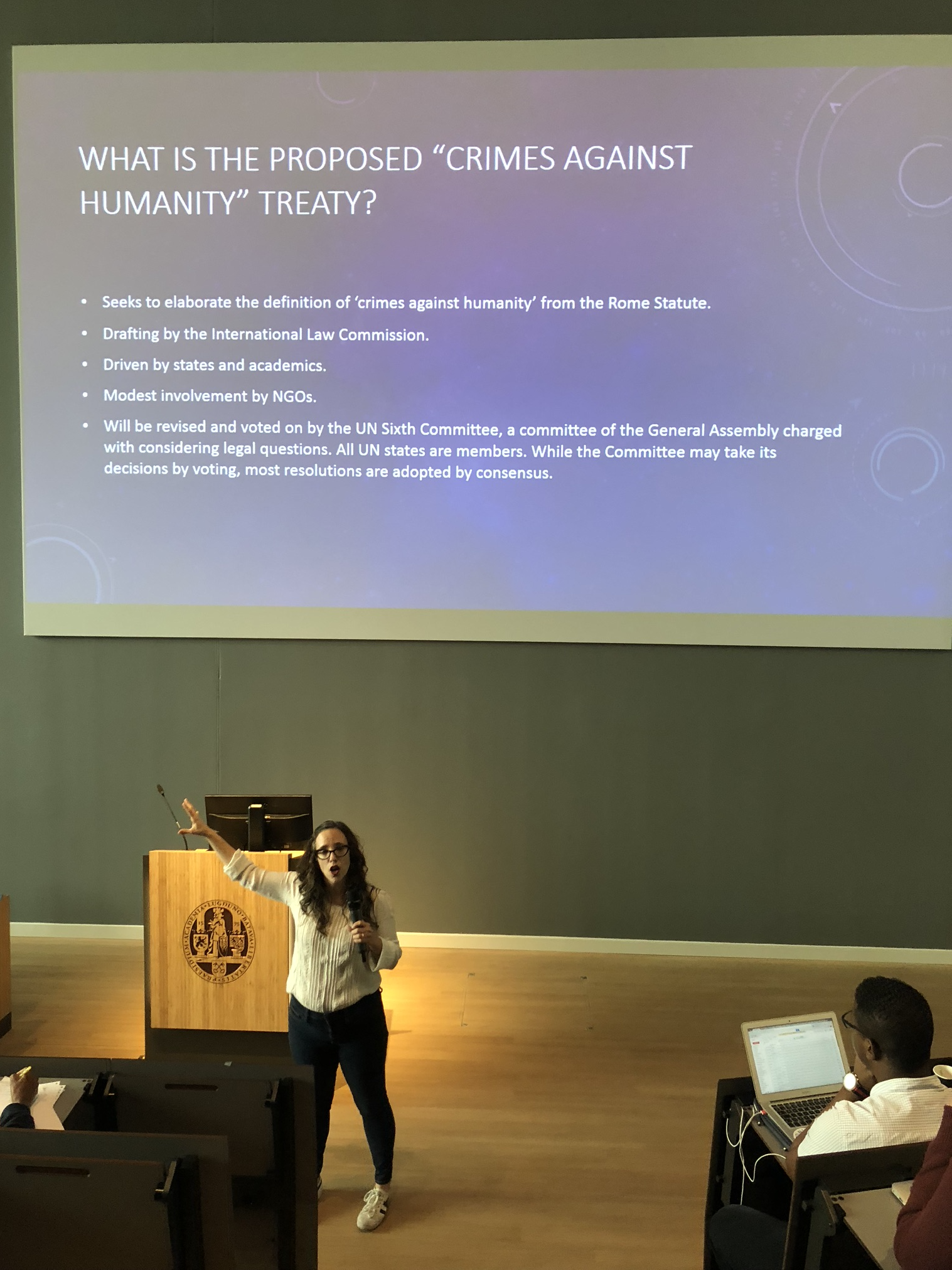
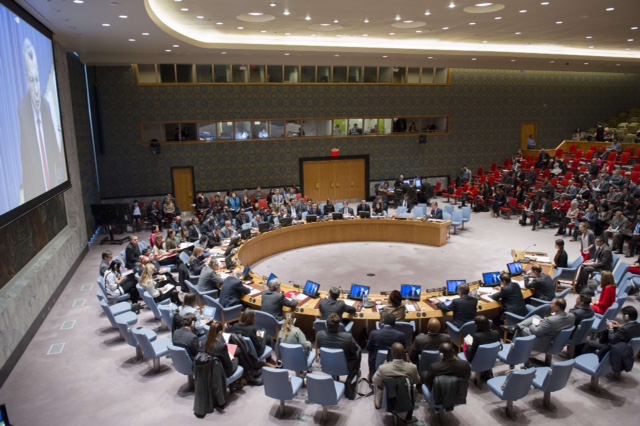

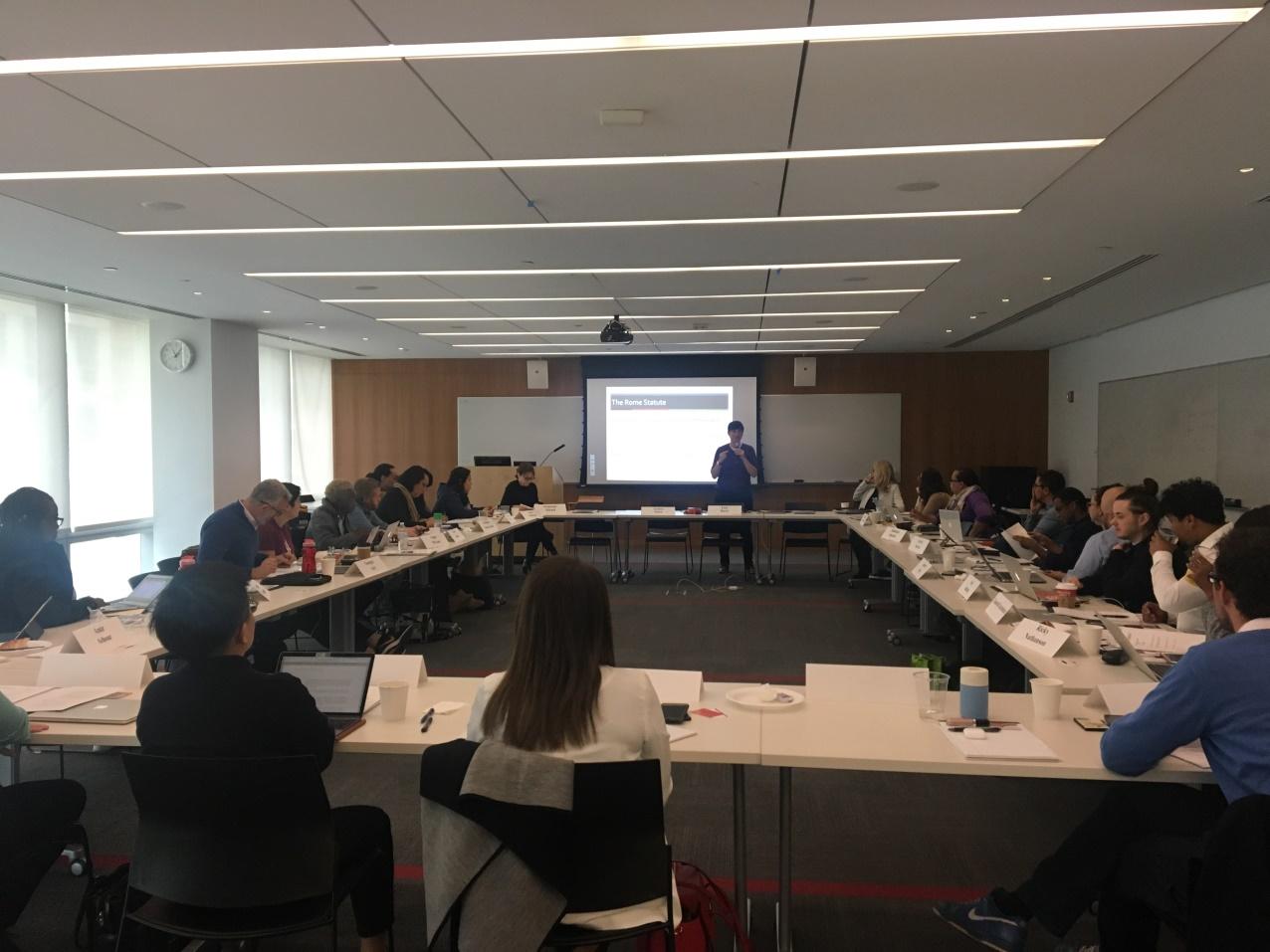
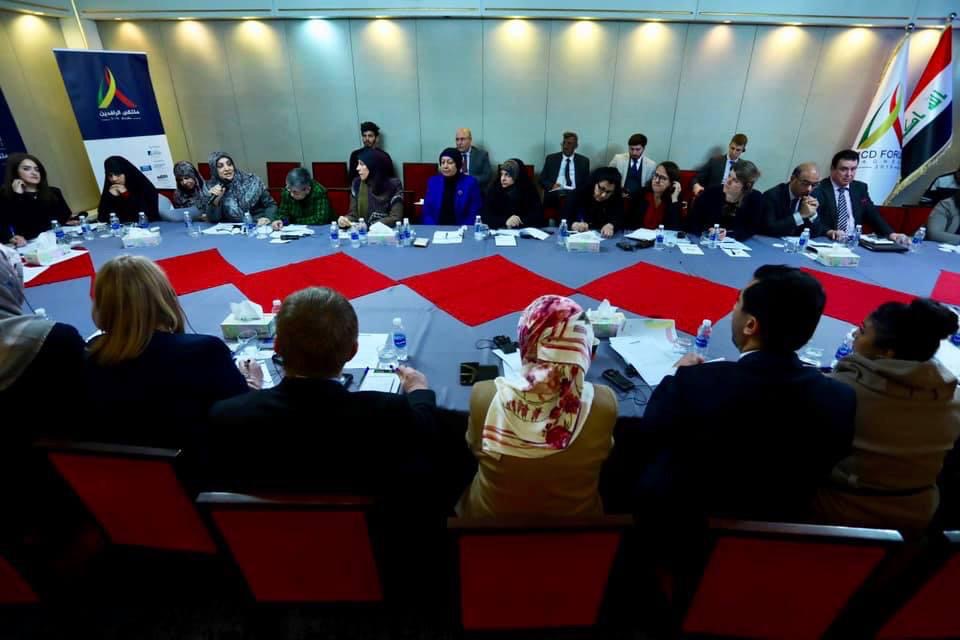 MADRE hosts a convening in Erbil, Iraq with women and LGBTQI+ rights activists to discuss gender under the draft treaty. Prof. Lisa Davis and Jessica Stern speak at the event.
MADRE hosts a convening in Erbil, Iraq with women and LGBTQI+ rights activists to discuss gender under the draft treaty. Prof. Lisa Davis and Jessica Stern speak at the event.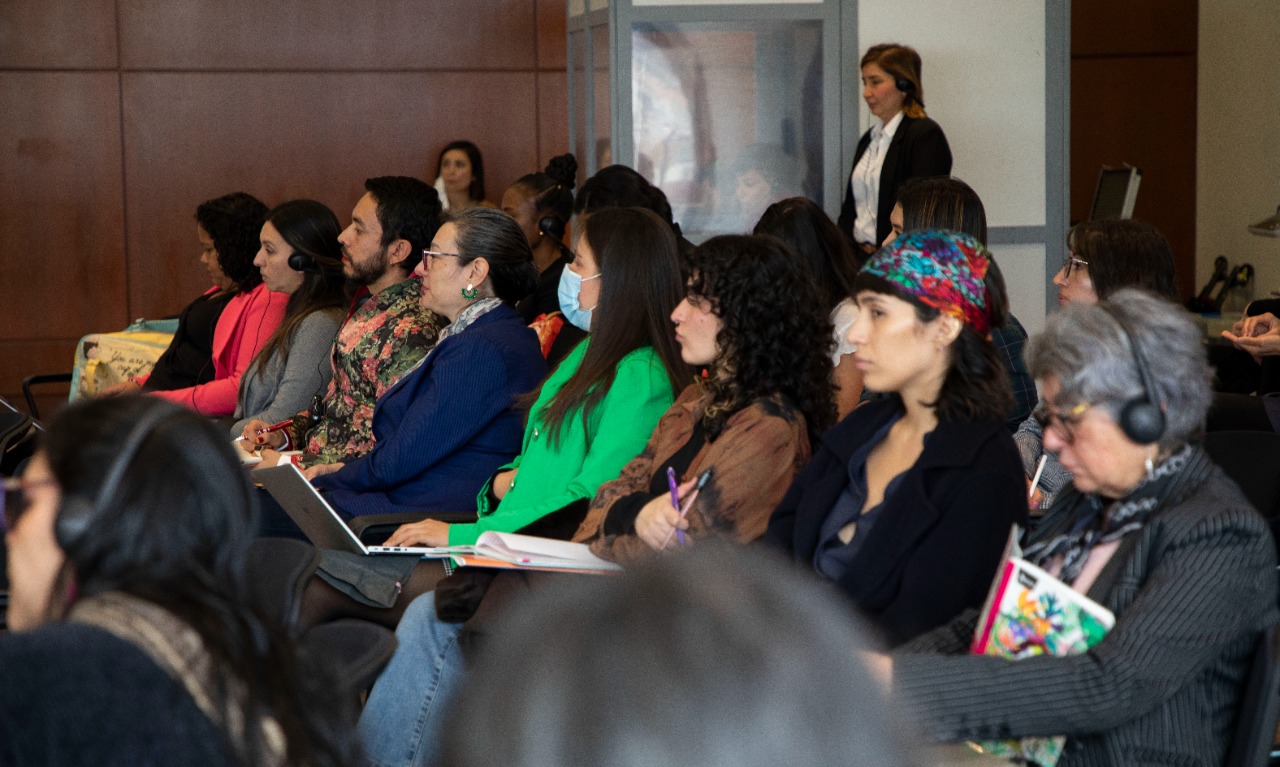 Coalition members organize a meeting with 29 member states and the European Union from the 3rd and 6th Committees of the UN General Assembly. Members discuss strategies for removing the outdated definition of gender from the draft treaty.
Coalition members organize a meeting with 29 member states and the European Union from the 3rd and 6th Committees of the UN General Assembly. Members discuss strategies for removing the outdated definition of gender from the draft treaty.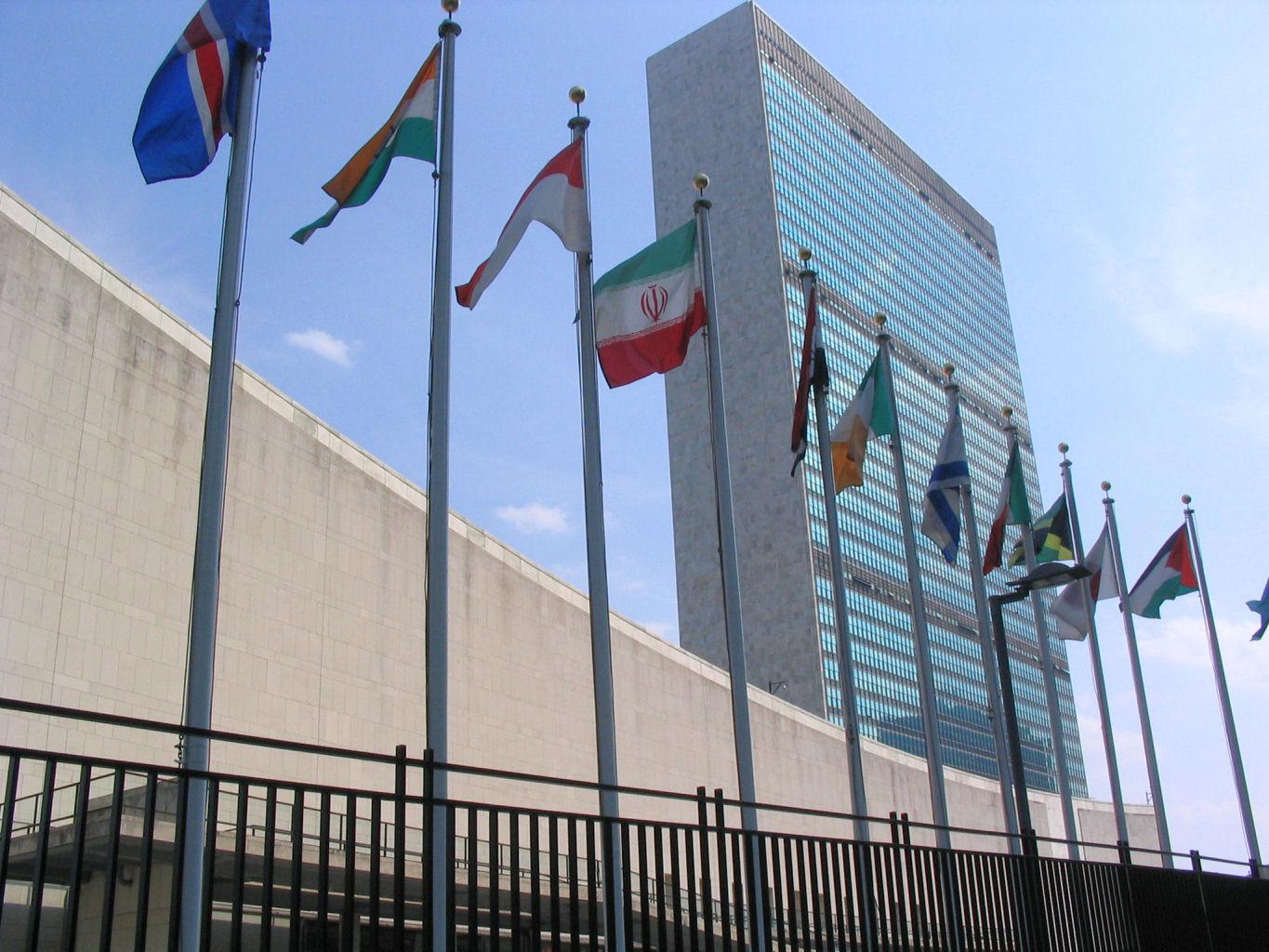
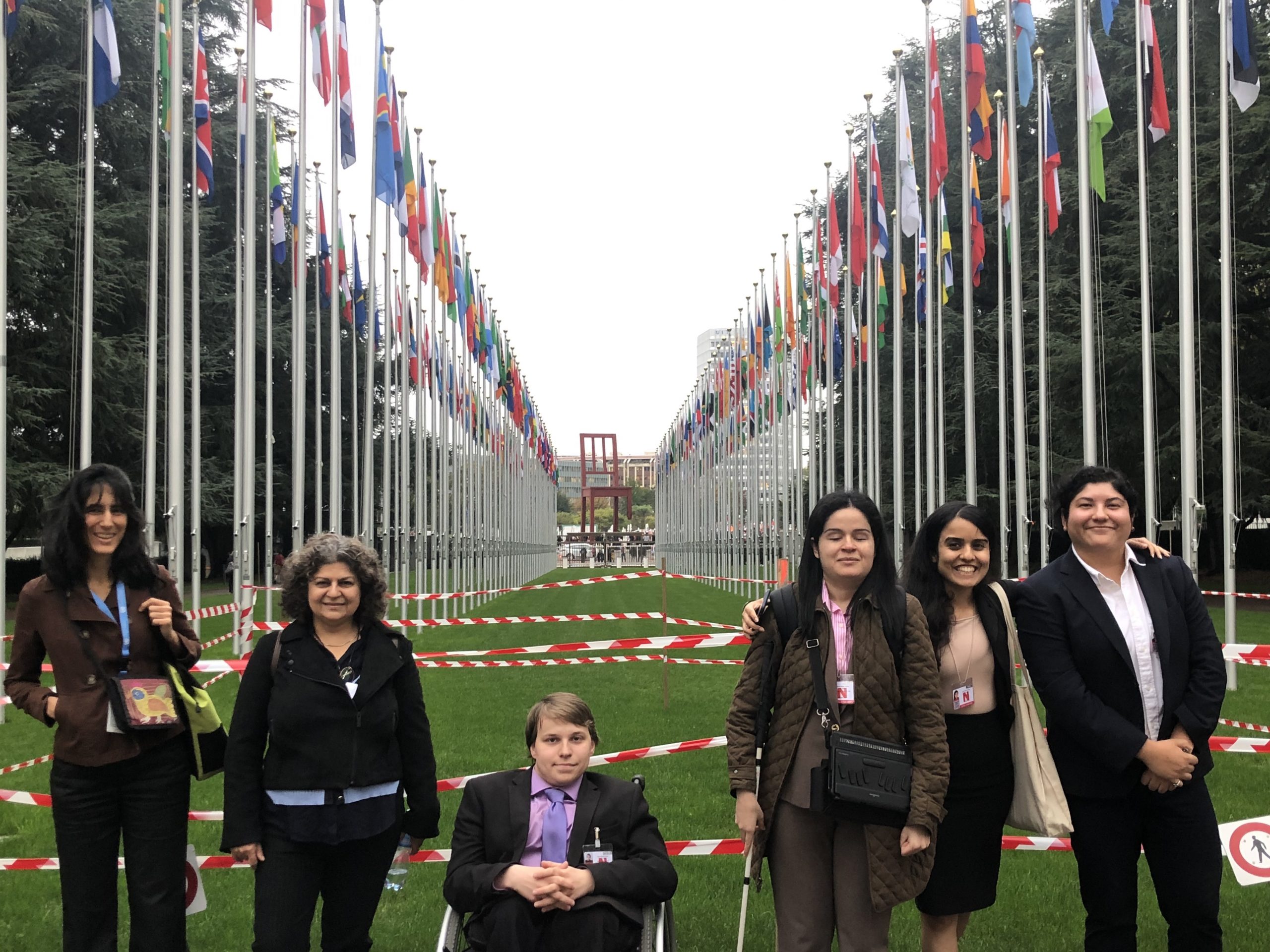 In his fourth and final
In his fourth and final 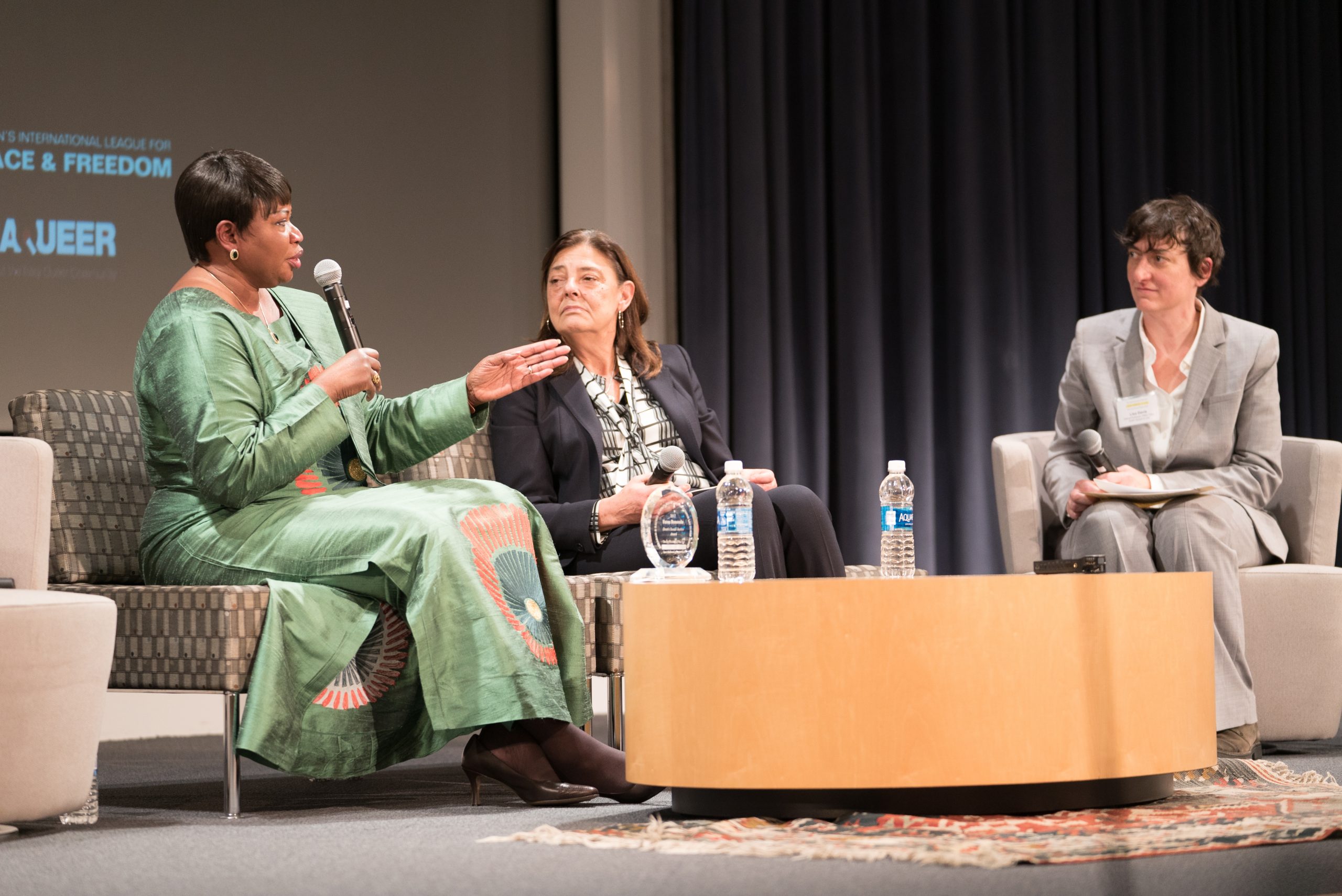 The International Law Commission Drafting Committee for the CAH Treaty reviews the final report of the Special and votes to finalize the treaty draft, removing the definition of gender. The Drafting Committee Chair states, “international organizations and others considered the definition of gender to be outdated and should be deleted or replaced…. This paragraph was therefore deleted ….”
The International Law Commission Drafting Committee for the CAH Treaty reviews the final report of the Special and votes to finalize the treaty draft, removing the definition of gender. The Drafting Committee Chair states, “international organizations and others considered the definition of gender to be outdated and should be deleted or replaced…. This paragraph was therefore deleted ….”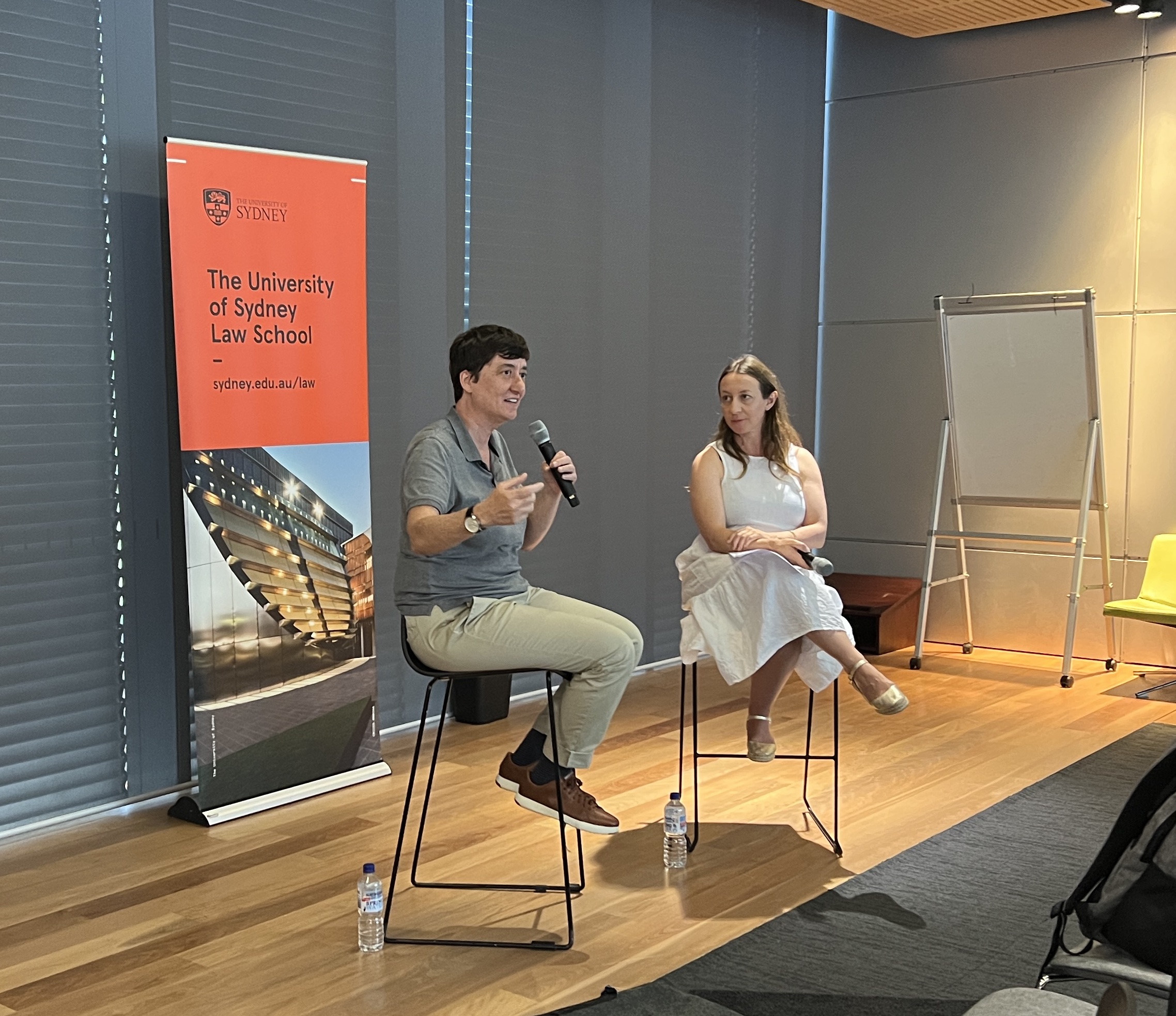 In September 2019, the Commission releases its final report on the draft CAH treaty. The Commission concludes that, “Since the adoption of the Rome Statute, numerous developments in international human rights law and international criminal law have occurred, reflecting the current understanding as to the meaning of the term ‘gender’ [as a social construct].”
In September 2019, the Commission releases its final report on the draft CAH treaty. The Commission concludes that, “Since the adoption of the Rome Statute, numerous developments in international human rights law and international criminal law have occurred, reflecting the current understanding as to the meaning of the term ‘gender’ [as a social construct].”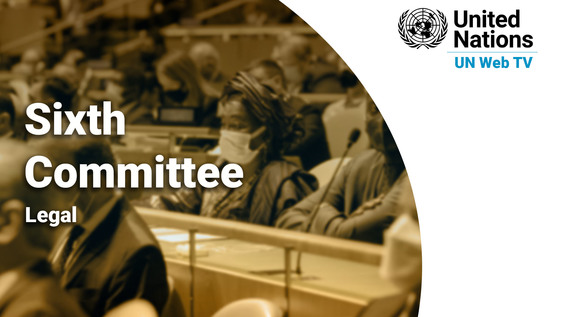 The 6th Committee adopts a resolution without a vote to continue the examination of the CAH treaty. Twenty-two states addressed the gender definition in their statements to the 6th Committee, with 15 speaking in support of removing the definition and six speaking in opposition to its removal.
The 6th Committee adopts a resolution without a vote to continue the examination of the CAH treaty. Twenty-two states addressed the gender definition in their statements to the 6th Committee, with 15 speaking in support of removing the definition and six speaking in opposition to its removal.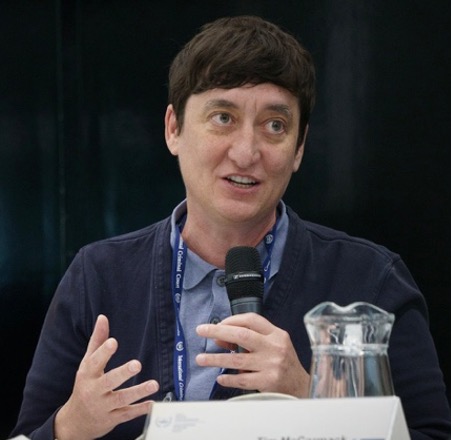 Professor Lisa Davis is
Professor Lisa Davis is 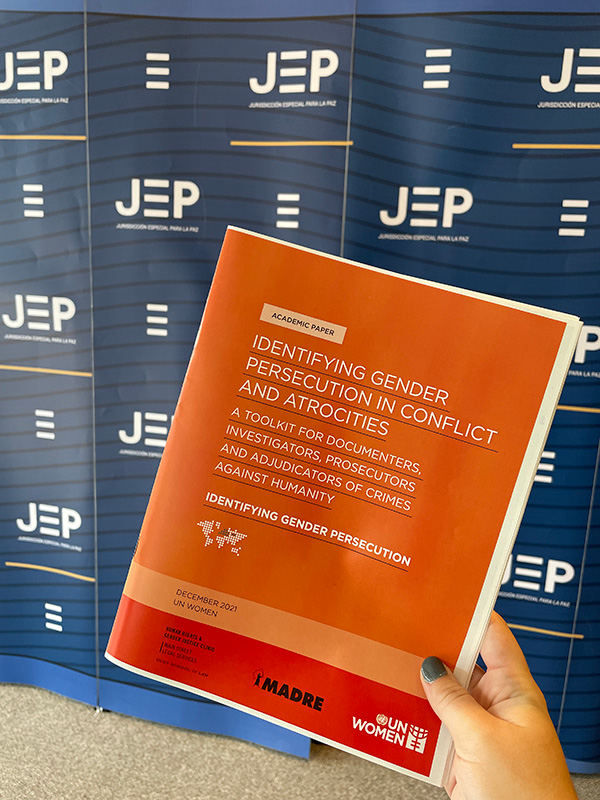
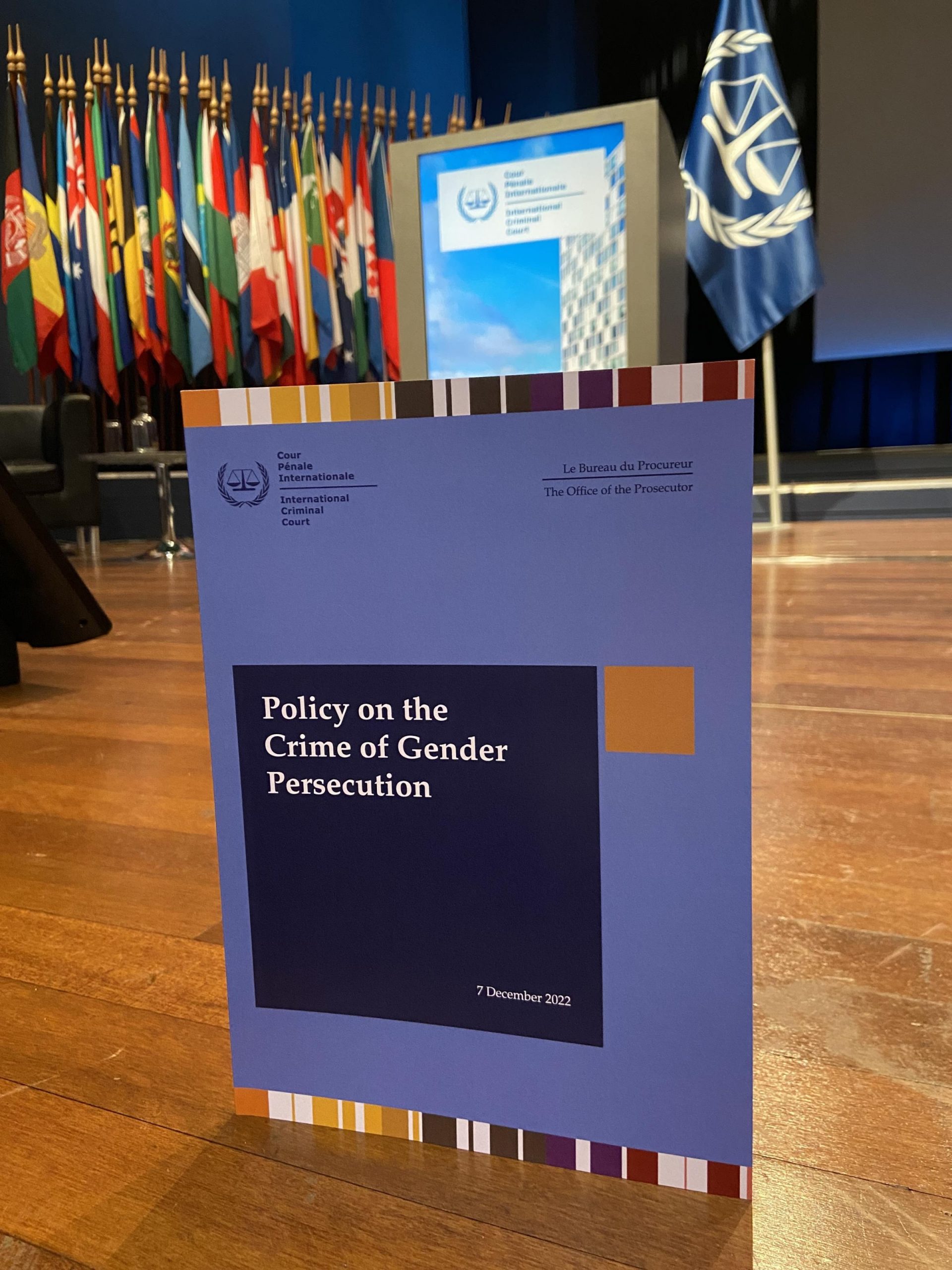 At the request of the ICC prosecutor, Prof. Davis drafts the first
At the request of the ICC prosecutor, Prof. Davis drafts the first 